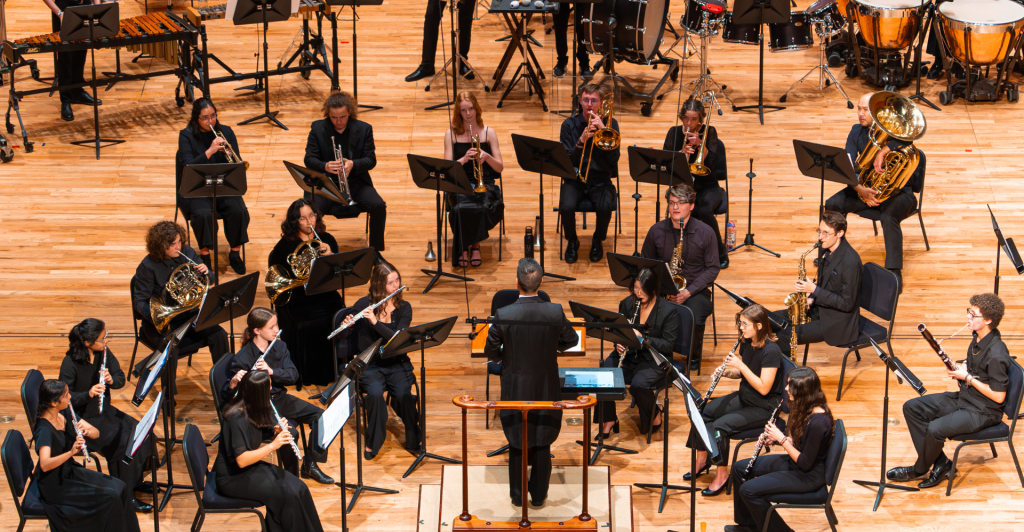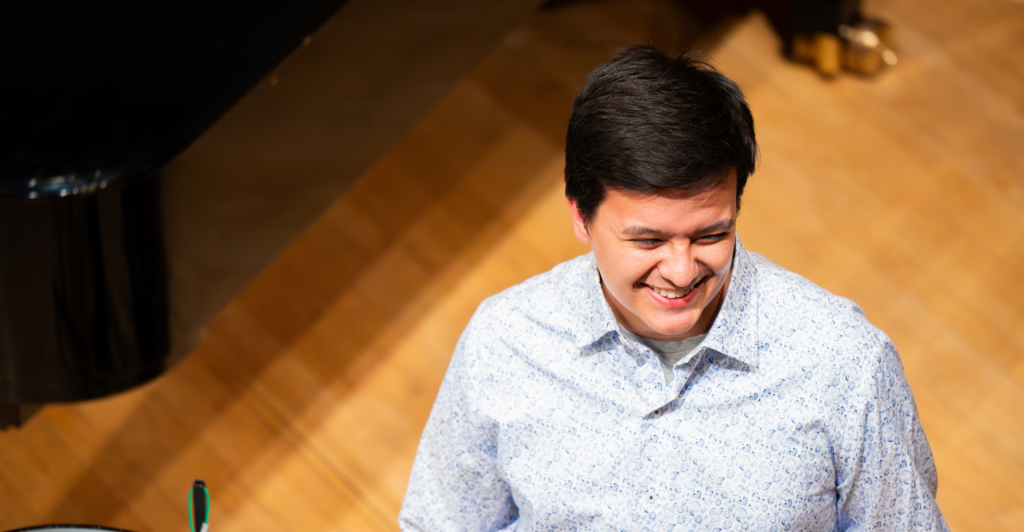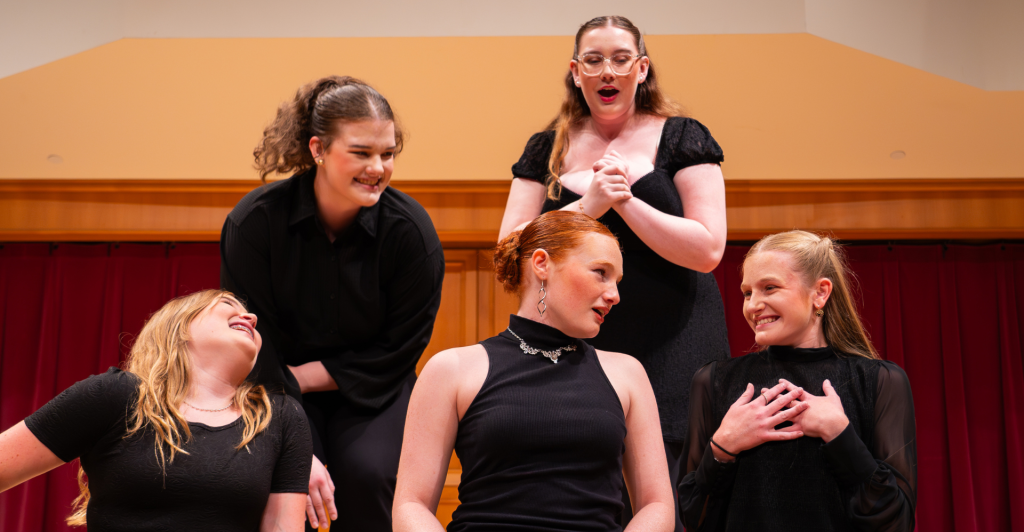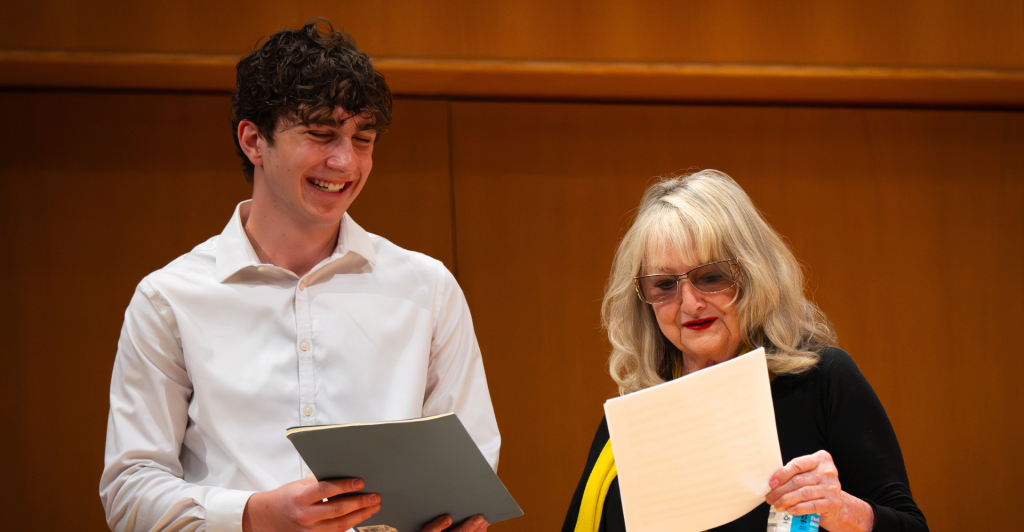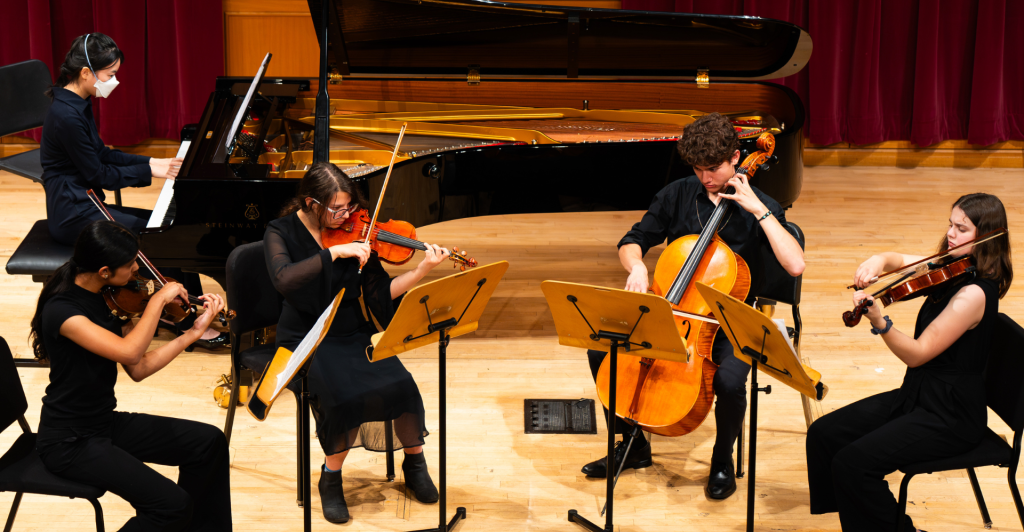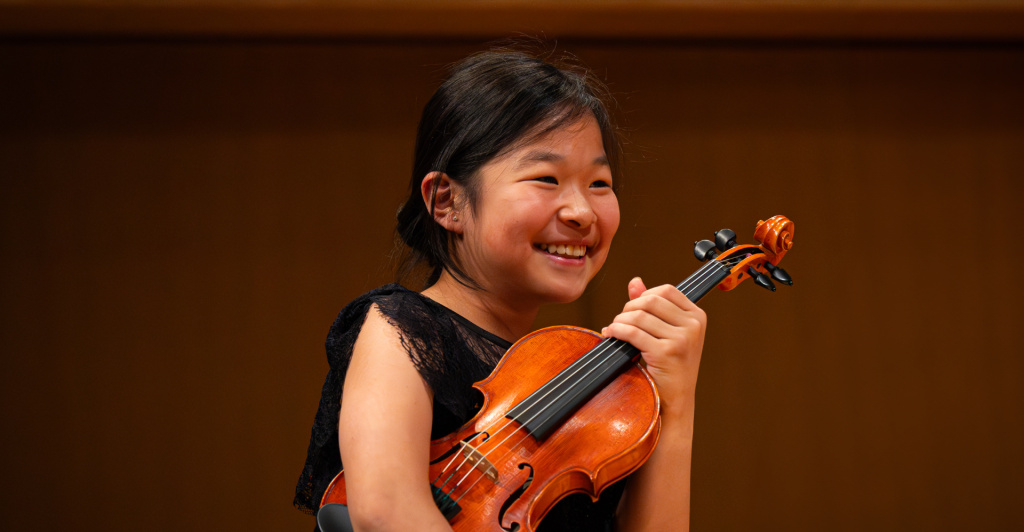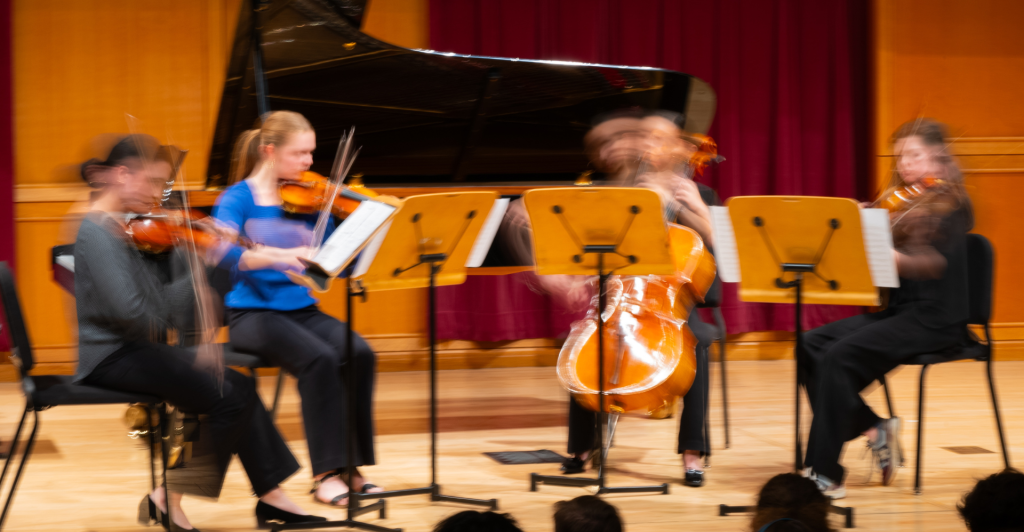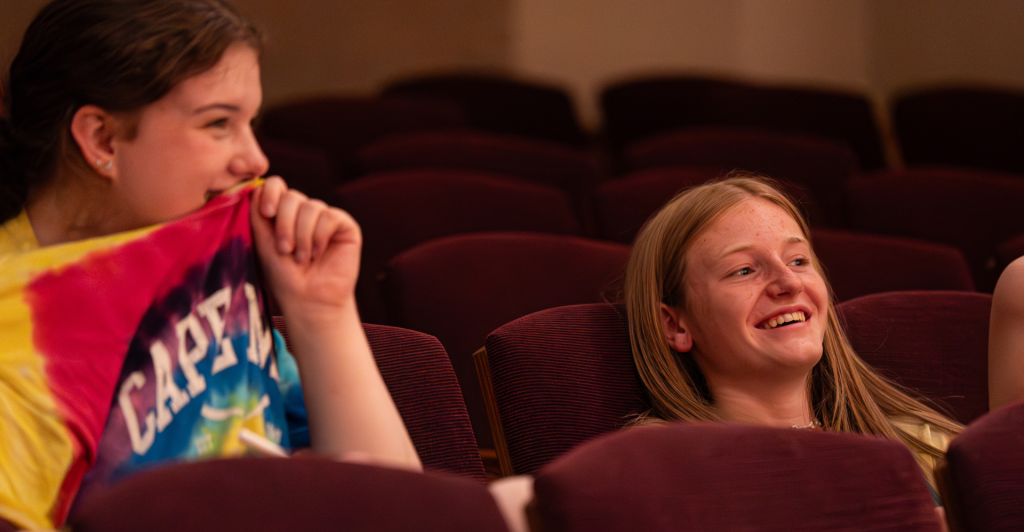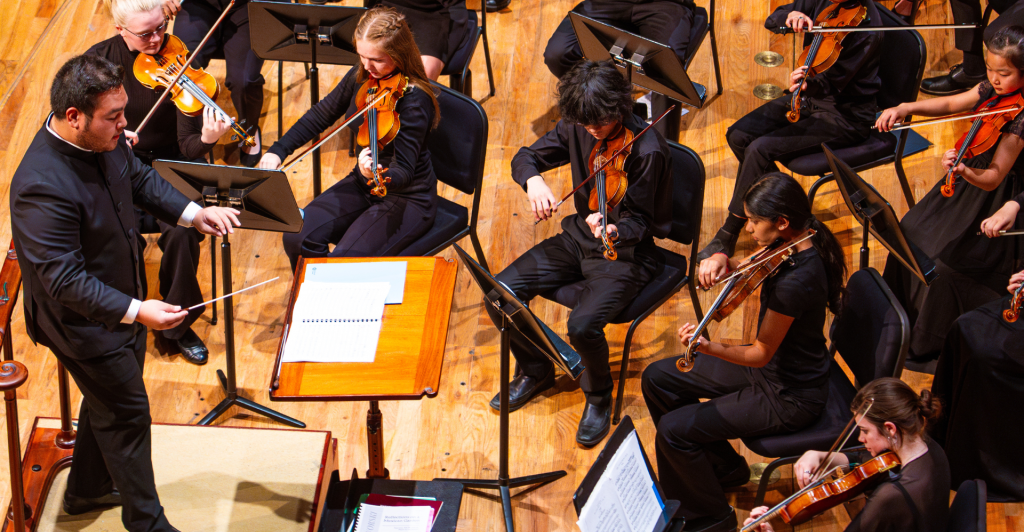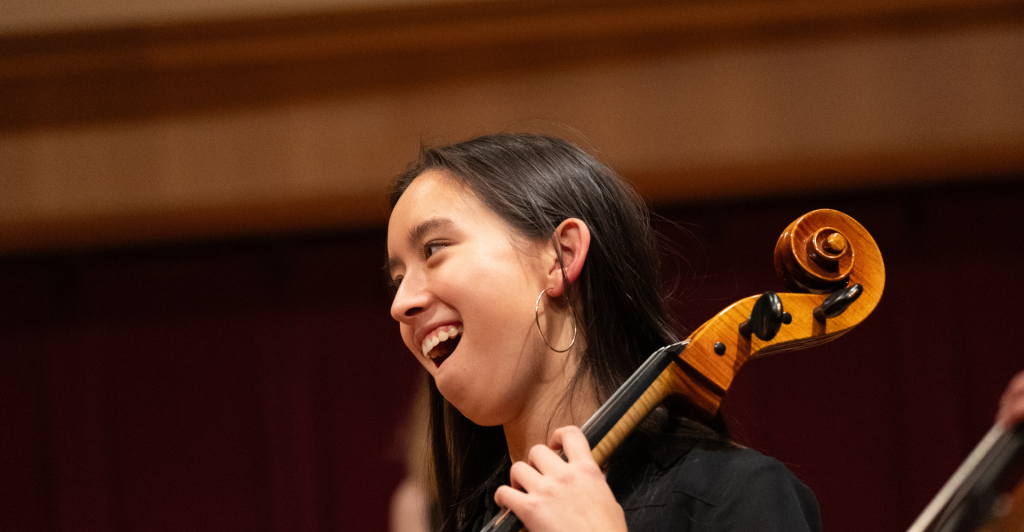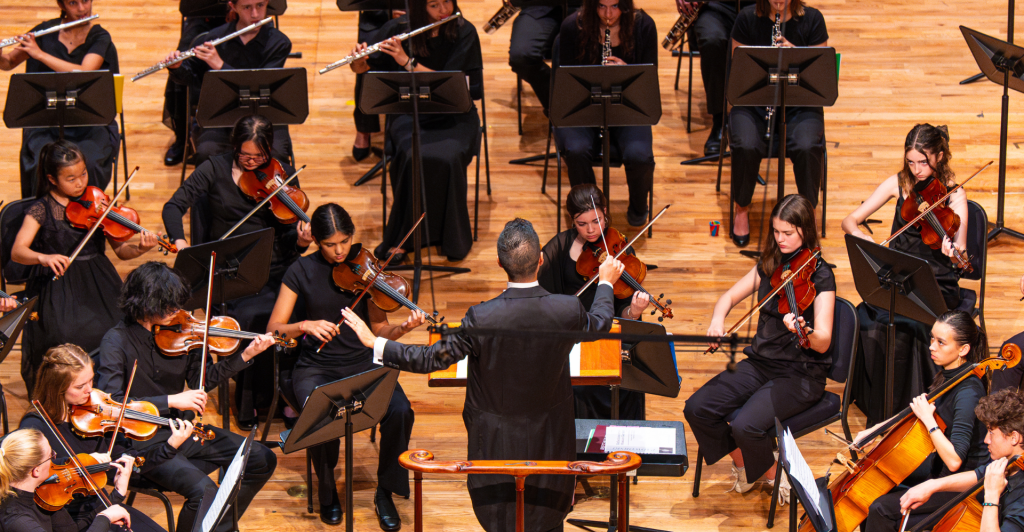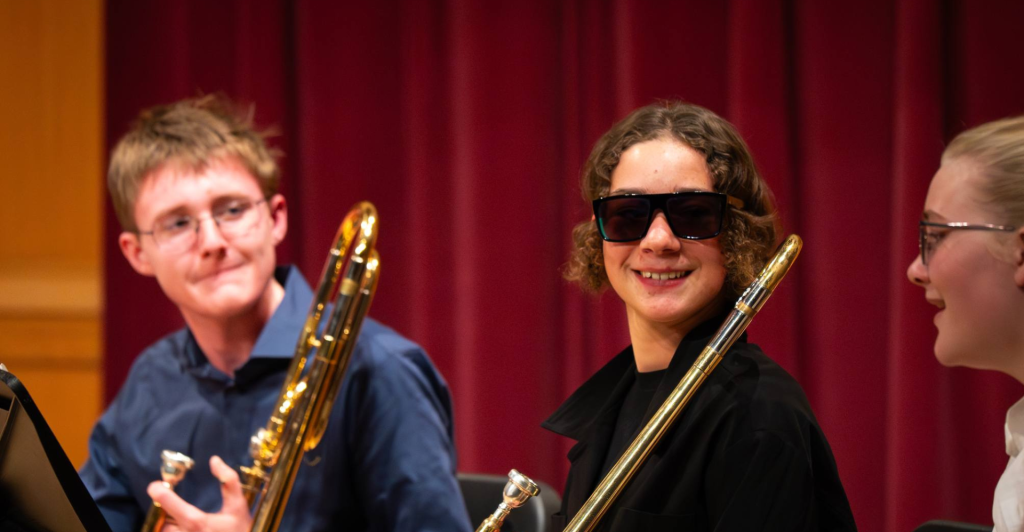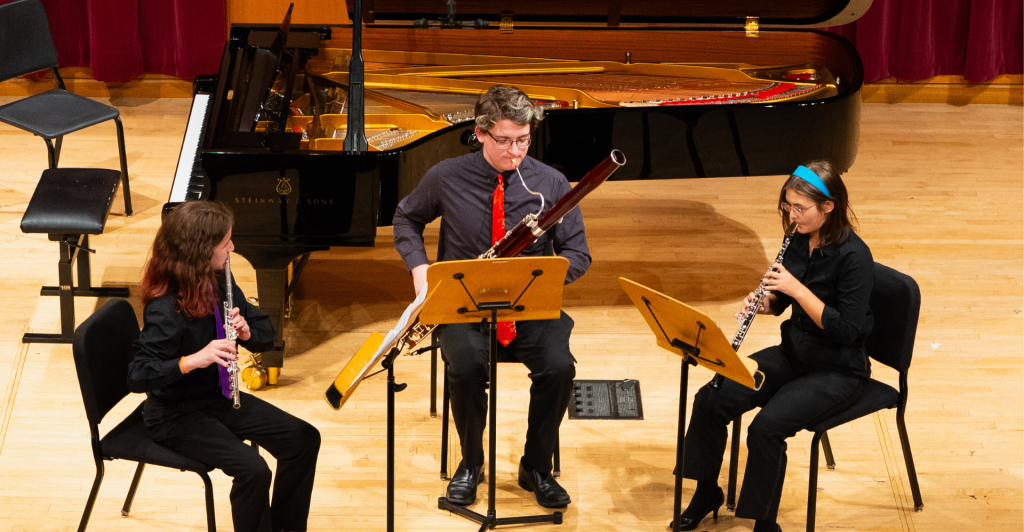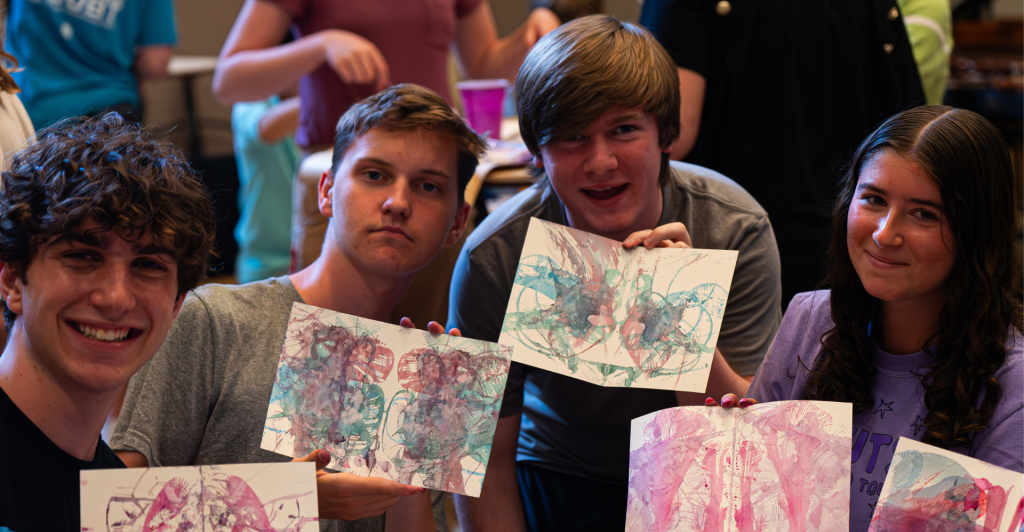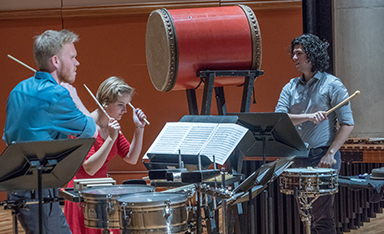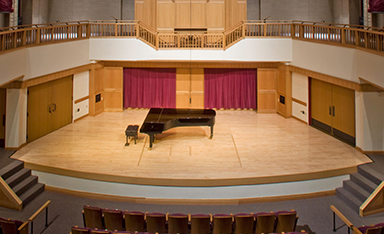Lamont Summer Academy
Lamont Summer Academy offers an innovative and inspiring 2-week, pre-college music experience at the University of Denver’s state-of-the-art music facility. Students have the opportunity to study with world-renowned faculty artists, perform with peers from around the world, and experience some of the artistic and cultural highlights of Denver.
NEW FOR SUMMER 2026: Incoming students can audition for either the Classical Summer Program or the Jazz & Contemporary Music Summer Program. LSA Classical students will have the opportunity to perform in chamber ensembles, orchestra, modern/contemporary ensembles, study classical music theory, and network with professionals across their intended fields. LSA Jazz & Contemporary Music students will play in combos, big band, modern/contemporary ensembles, study improvisation and jazz composition, and network with professionals across the jazz and contemporary music areas.
Applications accepted for all instruments, singers, pianists, and composers 13 - 18.
Mission Statement
The Lamont Summer Academy is committed to challenging and uplifting the next generation of musicians through rigorous musical study, rich program diversity and motivating and encouraging mentorship from some of the world’s leading musicians. Students are held to an international standard of excellence while forming lifelong friendships and gaining the skills needed for longevity in music. At LSA, success is measured through growth and persistence. Students learn to support one another and find joy in self-improvement while they pursue their demanding musical goals.

Lamont Summer Academy, June 17-July 1, 2026
Priority Application Decision December 15 Regular Application Deadline is March 15
Request Information Audition Information Apply Now Brochure
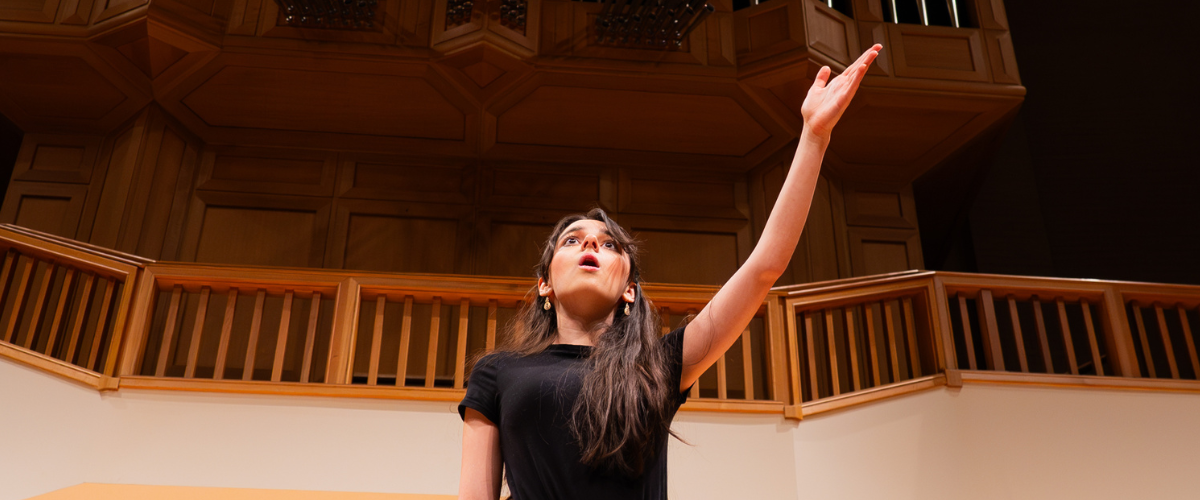
Perform
- Private Lessons with World-Class Faculty
- Chamber Ensembles & Orchestra
- Combos & Big Bands
- Daily Rehearsals
- Master Classes & Guest Artists
- Multiple Recital Opportunities
- Opera & Musical Theater Scenes
- Modern/Contemporary Ensemble Electives
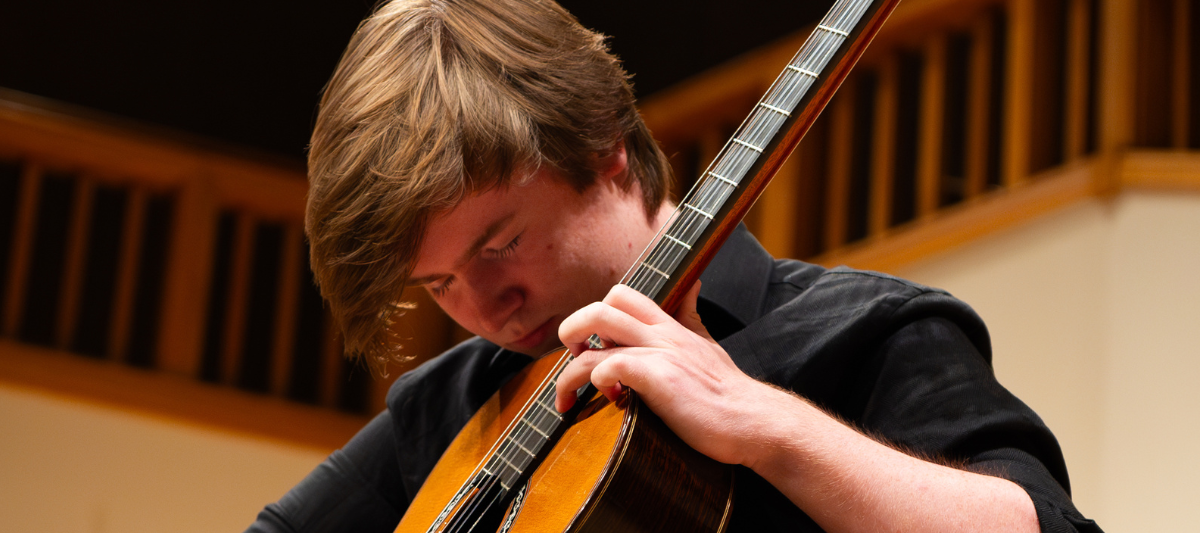
Create
- Composers' Workshop & New Music Ensemble
- Electronic Music
- Modern Music Making (Steel Drum, Modern Music, Bluegrass & Improv Ensembles)
- Composition & Arranging for non-majors
- Jazz composition courses for Jazz & Contemporary Music students

Explore
- "Behind the Curtain" Musicianship Seminars
- Audition Preparation Workshops
- College Admission Workshops
- Alexander Technique & Wellness
- Music Theory, Conducting, Listening & Artistry
- Recreation Events in a World Class City
- Lifelong Friends & Connections
Summer Academy Details
-
Application & Audition Information
The priority decision application is due December 15
The scholarship application is due February 15
The regular application deadline is March 15
Please note: Students must qualify for merit in order to be considered for financial need.
Application Process
Required materials:
- Student and parent/guardian basic contact information
- Student Musical Information (primary instrument, years of study, area of study, solo and chamber music studied in last 2 years, possible minor area of study)
- Audition recordings or PDFs (see requirements below)
- Private music teacher and school music director contact information.
- One teacher letter of recommendation submitted via email to lamontacademy@du.edu
- 1040 Individual Tax Income Return form (financial need-based scholarship applicants only) submitted via email to lamontacademy@du.edu — please mark over your social security number in all instances
- $75 non-refundable application fee
Audition Recording Requirements.
All merit scholarship applicants are required to submit three audition videos. Regular applicants are only required to submit two audition videos.
Upload videos to Google Drive and paste the shared in the appropriate fields in the online application form. Please make sure share settings are such that anyone with the link can edit so we can download as needed.
Please name videos using the following file naming protocol:
YourLastName_ComposerLastName_TitleofPiece.mov or mp4, etc.
Example: Jones_Beethoven_MoonlightSonata.mp4
Please visit our list of Designated Scholarships found at www.du.edu/lamont/summeracademy
Composition applicants will email PDFs and midi files or recordings to lamontacademy@du.edu
Voice:
- Two (2) pieces, with at least one of them classical in nature, preferably of contrasting character, exhibiting your skill, technique and understanding of musical phrasing and expression.
- For scholarship consideration, a third piece of your choosing with the same parameters.
Strings, Piano, Oboe, Bassoon:- One movement of a concerto or sonata
- An étude or showpiece
- A movement by Bach or another Baroque composer
All piano repertoire is required to be memorized
Brass, Clarinet:- One étude
- Two contrasting solos of the applicant’s choice
Flute:- Two contrasting solos of applicant's choice (i.e. Slow and Fast)
- One étude
Percussion:- Études or solos on three areas of percussion: Choose from snare drum, marimba, timpani, drum set, and world percussion.
Composition:- Three original compositions. Submit PDF files and midi files (or real recordings if available) by email to lamontacademy@du.edu.
Guitar:- An étude by one of the following composers: Sor, Carcassi, Aguado, Giuliani, Tárrega, Villa-Lobos, Brouwer
- A piece by one of the following composers: Bach, De Visée, Weiss, Scarlatti
- A piece of your choice
Harp:- One concert étude of choice: Bach Grandjany/Naderman/Bochsa/Posse/Pizzoli/Larivière/Tournier/Godefroide, etc
- Two contrasting pieces demonstrating the applicant's highest level of work.
Jazz & Contemporary Music:
- Two standard tunes from the following categories: Up-tempo Swing, Blues, Ballad, and Medium Swing.
- Scholarship applicants need to submit a third tune within the same parameters.
- Tunes should include the melody (head), improvisation, comping (rhythm section instruments only), and then melody out.
Submit application:- Once materials are prepared, proceed to the Lamont Summer Academy Application.
- The letter of recommendation will be emailed to lamontacademy@du.edu by the application deadline. The subject line should be "Student Name Teacher Recommendation" for the recommendation.
- 1040 Individual Tax Income Return form (financial need-based scholarship applicants only) will be emailed to lamontacademy@du.edu — please mark over your social security number in all instances. The subject line should be "Student Name Tax Form" for the 1040.
- The application fee can be submitted electronically or mailed to:
Lamont Summer Academy
University of Denver
2344 E. Iliff Ave.
Denver, CO 80208
-
Curriculum
Private Lessons
Each student receives four lessons in their major area of study with an acclaimed faculty member.
Students should bring at least three pieces of music in their major field to study:
- One thoroughly polished and ready to perform.
- One that can be prepared for performance.
- One that is new.
A specific teacher may be requested, and every effort will be made to facilitate the request. Practice coaches are available upon request to assist students. All students are assigned practice rooms and a minimum of two practice sessions daily. All piano majors are assigned to practice rooms with Steinway grand pianos.
- String Students
- Piano Students
- Wind, Brass, and Percussion Students
- Voice Students
- Composition Students
- Guitar Students
Secondary Lessons and Areas of Study (Minors)For an additional fee of $300, students may add an additional specialization, or “minor”. Each offering provides three 45-minute classes or lessons to the student during their time at LSA.
Secondary areas of study, or minors, are broken into two categories:
- Performance minors which include three 45-minute lessons on a secondary instrument, voice, or composition, or jazz lessons on a student’s primary instrument.
- Classroom minors which include three 45-minute classes on a variety of topics listed below.
Performance Minors:
Secondary Instrument Lessons: Being a versatile performer is a true 21st century skill. Vocalist need piano skills. Woodwinds often need to double. Violinists will sometimes be asked to play viola. Or maybe your interests just can’t be kept to one instrument. This is for you.
Composition: Creating your own music, and making arrangements of existing pieces should be part of every musician’s toolkit. A composition minor is good for those that want to receive training but still prefer an instrument as their primary area of study.
Jazz on your primary instrument: 21st century musicians should be able to play across genre. These lessons allow you to try your hand at jazz without having to do so in an ensemble setting.
Songwriting Lessons: Craft original tunes alongside an industry professional. These are highly encouraged for Jazz & Contemporary Music students and open for Classical Music students.
Classroom Minors:Performance Anxiety and Success: Learn to cope with nerves, maximize your focus, and play with confidence.
Alexander Technique: Alexander Technique teaches how to prevent and recover from injury, alleviate the effects of nervousness in performance, increase breath capacity, prevent tension, and improve technique, ease and sound in playing.
Conducting: For students wanting to build their current conducting skills or to explore the option of including conducting as a component of their musical career. During the three sessions, students will learn basic movements and strategies to achieve the beginnings of an elegant and artistic approach to instrumental conducting. Philosophies and challenges for the modern conductor will be discussed as well as an introduction to rehearsal planning and score study.
Film Scoring: Great for composition majors or any musician. A project-based look at the musical and technical aspects of syncing music to video.
Electronic Music: In this class, students will learn audio clip triggering, drum programming, and MIDI basics to create digital music using Ableton Live, one of the most powerful and popular music software applications today.
Electronic Press Kit/ Basic Web for Musicians: Part of our Professional Development & Entrepreneurship series, these three classes will introduce young musicians to writing professional bios, developing a value proposition, and the basic tools for a simple but functional web site.
Double Minor: It is possible for a student to take two minors: one performance minor, and one classroom minor. This option is offered at a discounted rate of $500 instead of the normal $600 two minors would normally cost. Please email us at lamontacademy@du.edu with any questions.
EnsemblesAuditions: All students (except composition majors) will audition for the faculty at the beginning of week one. Instrumental auditions will be for seating placement in orchestra and wind ensemble. Pianists, vocalists and guitarists will audition as a preliminary hearing for the master classes and honors recital before lessons commence. (See Academy Guidebook for information regarding audition repertoire.)
- Chamber Music: Instrumental and vocal chamber groups rehearse daily, receive four or more coaching sessions, and may have the opportunity to perform in a master class. Participation in chamber music at this level is an exceptionally rewarding experience for the advancing musician. Students will receive their chamber assignments well in advance of the L.S.A., and are required to come fully prepared with their part thoroughly learned. Chamber groups will perform in the final recitals.
- Combos: For Jazz & Contemporary Music students. Small jazz ensembles rehearsed with a faculty member. Combos decide music during the first week of the academy and will perform at one of the final concerts.
- Vocal Chamber: Voice students (majors and minors) participate and perform in small ensembles where they will prepare short scenes from an operetta or musical.
- Orchestra: Instrumental majors participate in orchestra and perform works for both full and string orchestra. Seating is determined by audition on the first full day of the session. Composition and piano students who are skilled at playing an orchestral instrument may audition to participate as well.
- Big Band: For Jazz & Contemporary Music students.
- Wind Ensemble: Woodwind, brass and percussion majors may participate in wind ensemble, focusing specifically on instrumental techniques and repertoire for wind ensemble.
- Modern Music Making: 21st century musicians should strive to be stylistically nimble and be able to play across genre. We offer a variety of ensembles to help build those skills.
- Steel Drum Ensemble: Students have the opportunity to explore new musical horizons as they learn to play and perform on the steel drums.
- Modern Music Ensemble: Explore classical music produced from the 20th century until now - learn how to improv within classical boundaries and learn about living composers.
- Flex Jazz Ensemble: Open to any singer or instrumentalist that wants to explore jazz and improvisation. Great for students that already have jazz experience.
- Steel Drum Ensemble: Students have the opportunity to explore new musical horizons as they learn to play and perform on the steel drums.
All major ensembles are featured on the final afternoon concert.
Recitals & Performance Classes: With their teacher's/coach's approval, students have the opportunity to participate in performance classes throughout the session and may be eligible to perform on the Honors Chamber Recital and/or Honors Solo Recital, held in the second week of summer academy. Performance in frequent informal classes is highly encouraged and a collaborative pianist is available for rehearsal. Final instrumental and vocal chamber music recitals, including small ensembles, take place on the second to last day of academy. The final concert, featuring the large ensembles, takes place on the final day of academy so that families may attend. All performances are held in the beautiful facilities of the Robert & Judi Newman Center for the Performing Arts, Lamont School of Music.
Master Classes & Honors Recital: The selection of students for master classes and honors recitals is by recommendation of the private instructor or coach. Ensemble auditions will serve as a preliminary hearing for selection. Students who wish to be considered for one of these opportunities must inform their instructor during their first lesson, and demonstrate at that time that the piece they wish to perform has been sufficiently prepared. Memorization is required for piano, strings, and voice; memorization is preferred for woodwinds and brass.
Classes
Theory & Musicianship: All students participate in a music theory class. A theory placement test will determine class level. Students that score high enough on the placement test may opt for more practice time. These theory classes alternate with musicianship classes (Basic Composition, Listening and Artistry)
Voice Class: Voice students participate in daily voice class, focusing on healthy singing techniques, vocal production, diction, dramatic movement/presentation and vocal repertoire.
Piano Class: Pianists participate in daily piano classes, which provide an informal atmosphere for performance and include instruction in collaborative piano, piano literature, healthy playing, practice techniques and memorization, among other topics.
Guitar Class: Guitar students will focus on technique, sight-reading, and musicianship, as well as explore injury prevention, Alexander Technique, guitar literature and understanding different traditions of classical guitar playing.
Stretching & Yoga Class: Offered as an optional class for all students, this class focuses on exercises to maintain a healthy, injury-free musician, both mentally and physically.
-
Concerto/Aria Competition
The competition winner will be the featured soloist with the LSA Orchestra on the final concert in Gates Concert Hall, University of Denver, Robert and Judi Newman Center for the Performing Arts.
Pre-Approval Form
Application Form1. Participants must be enrolled in the Lamont Summer Academy and have paid their non-refundable deposit of $500 by April 15.
2. One concerto movement or aria only. Memorization required.
3. Concerto movement must meet the following criteria:
* Length of movement no longer than 12 minutes
* Orchestration must be for either string orchestra or classical orchestra instrumentation (strings, 2 flutes, 2 clarinets, 2 oboes, 2 bassoons, 2 horns, 2 trumpets and timpani)
* Orchestra parts must be available for purchase. IMSLP even better. Pieces for which the orchestra parts are only available for rent are not eligible.**NOTE: exceptions in length and instrumentation will be considered on a case to case basis
4. All repertoire must be submitted for pre-approval via this form by April 1st.
5. Once pre-approved, submit your $35 application fee through the Lamont Summer Academy Payment Portal found under the "Forms and Payment" section on the Lamont Summer Academy website.6. Then complete the Concerto/Aria Competition Application (separate from this form), which can be found in the same section of the LSA by May 1.
In some rare cases a student may want to apply on more than one instrument. This is allowed but you must submit twice, and pay both application fees. -
Tuition, Scholarships & Financial Aid
Tuition
- Two-week residential student $2,550 (tuition, room & board, recreation)
- Two-week commuter $2,000 (tuition, lunch & dinner, recreation)
- Additional 'minor' or secondary area of study $300 (secondary instrument, conducting, etc)
- Double Minor $500. Students can sign up for an additional performance minor and a classroom minor at a discounted rate of $500 for both. See the Curriculum tab below for details.
- Payment plans and scholarships are available. Contact us for details.
Scholarships & Financial Aid
Almost 70% of our participants receive financial aid to attend the Lamont Summer Academy. Amounts vary based upon merit and financial need. Students are strongly encouraged to explore funding sources in their own communities and through various organizations (ASTA, Rotary & Music Clubs, etc), foundations and businesses.
There is a section in the LSA Application for scholarship and need-based aid.
To be considered for scholarships, students must meet the February 15 scholarship deadline. -
Designated Scholarships
The Lamont Summer Academy is pleased to announce significant scholarship support in 2025.
Alongside merit-based and need-based assistance (students must qualify for merit to qualify for need-based assistance), we are offering the following Designated Scholarships. If you are applying for one of these Designated Scholarships, please indicate which one in the "Designated Scholarships" field on the application. You do not have to be a part of these organizations to qualify for scholarship. You just must meet the guidelines of the February 15 Scholarship Application Deadline. If you are not affiliated with one of the organizations listed here, perhaps use one of the Lamont scholarships at the bottom of the list.
- The Cathedral Basilica St Francis of Assisi Vocal Scholarship (Santa Fe, New Mexico only)
- Colorado Springs Youth Symphony Conductor's Choice Scholarship
- Denver School of the Arts Conductor's Choice Scholarship – Enrique Lasansky
- DYAO Conductor’s Choice Scholarship
- El Sistema Colorado Scholarship
- Fossil Ridge Conductor's Choice Scholarship
- Las Vegas Academy for the Arts Scholarship
- Legacy High School Conductor’s Choice Scholarships
- Lone Tree Symphony Douglas County Student Merit Scholarship
- Luther Strings Viola Merit Scholarship (open to any string applicant)
- Luther Strings Cello Merit Scholarship (open to any string applicant)
- Luther Strings Violin Merit Scholarship (open to any string applicant)
- Luther Strings Double Bass Merit Scholarship (open to any string applicant)
- MTNA Competition Winner Scholarship
- New Orleans Center for Creative Arts Conductors Choice Instrumentalist Scholarship
- New Orleans Center for Creative Arts Conductors Choice Vocalist Scholarship
- Omaha Youth Symphony Scholarship
- Phoenix Conservatory of Music
- Phoenix Youth Symphony Concerto Competition Winner Scholarship
- Phoenix Youth Symphony Merit Scholarship
- Playground Ensemble Composition Scholarship (Open to all composers)
- PMAY (Philadelphia Music Alliance for Youth) Artist Initiative
- PPMTA/CYSA Concerto Competition Winners
- Quad City Symphony Youth Ensembles
- San Juan Symphony Youth Orchestra Conductor's Choice Scholarship
- Santa Fe Youth Symphony Merit Scholarship
- Schmitt Music Competition Winner Scholarship (piano only)
- Valley Youth Orchestra (Western Colorado)
- Lamont Summer Academy International Student Scholarship
- Lamont Summer Academy Violin Prize (All Lamont Summer Academy Prize scholarships are open to anyone that auditions. Please do list them as appropriate.)
- Lamont Summer Academy Low Strings Prize (viola, cello, bass)
- Lamont Summer Academy Voice Prize
- Lamont Summer Academy Woodwind Prize
- Lamont Summer Academy Brass Prize
- Lamont Summer Academy Percussion Prize
- Lamont Summer Academy Piano Prize
Your Youth Symphony Conductor's Choice Scholarship (if your youth symphony conductor is offering this opportunity, they will have announced it at rehearsal. If you are a student or conductor whose youth symphony does not yet offer this and you are interested, contact
LamontAcademy@du.edu.)
-
Forms & Payments
Forms & Payments
- LSA Guidebook
- Acceptance Packet Instructions
- LSA Family Health Form - to be completed by participant and a parent/ guardian.
- LSA Physician Health Form - only required if LSA Family Health Form says so. Needs a physician signature.
- LSA Physician Health Form - only required if LSA Family Health Form says so. Needs a physician signature.
- Theory Placement Exam Form
- Modern Music Electives Form
- Arrival Departure Form
Concerto/Aria Competition
Payment Portals
LAMONT SUMMER ACADEMY PAYMENT PORTAL
Counselor Information
- LSA Guidebook
-
Faculty & Staff
Summer Academy Staff
- Kassandra Lopez, Director
- Evan King, Assistant Director
Summer Academy Faculty
Brass
- Richard Harris, trombone
- Carolyn Kunicki, horn
- Evan King, trumpet
Composition- Leanna Kirchoff, composition and film scoring
- Remy Le Boeuf, composition
Conducting- Héctor Jardón Rodriguez, orchestra, wind ensemble & conducting classes
Guitar
Jazz & Contemporary Music- Remy Le Boeuf, composition
- Camilla Vaitaitis, piano and composition
- Adam Gang, woodwinds and bands
- Zach Rich, brass and composition
Percussion
- Thomas Miller, steel pan
Piano- Stephanie Cheng, lessons & chamber coach
- Emily Book McGree, lessons
- Christopher Thompson, accompanist & instrumental music coach
Strings- Igor Pikayzen, violin & chamber coach
- Linda Wang, violin
- Erik Peterson, violin
- Ezgi Pikayzen, viola & chamber coach
- Dakota Cotugno, cello & chamber coach
- Nicholas Recuber, bass & chamber coach
Voice
Woodwinds- Martin Kuuskmann, bassoon
- Cathy Peterson, flute
- Jeremy Reynolds, clarinet & chamber coach
- Ian Wisekal, oboe & chamber coach
- Sarah Bierhaus, oboe & chamber coach
- Adam Gang, saxophone & flex ensemble director

Application Deadlines
February 15 for scholarship consideration
March 15 for regular consideration
